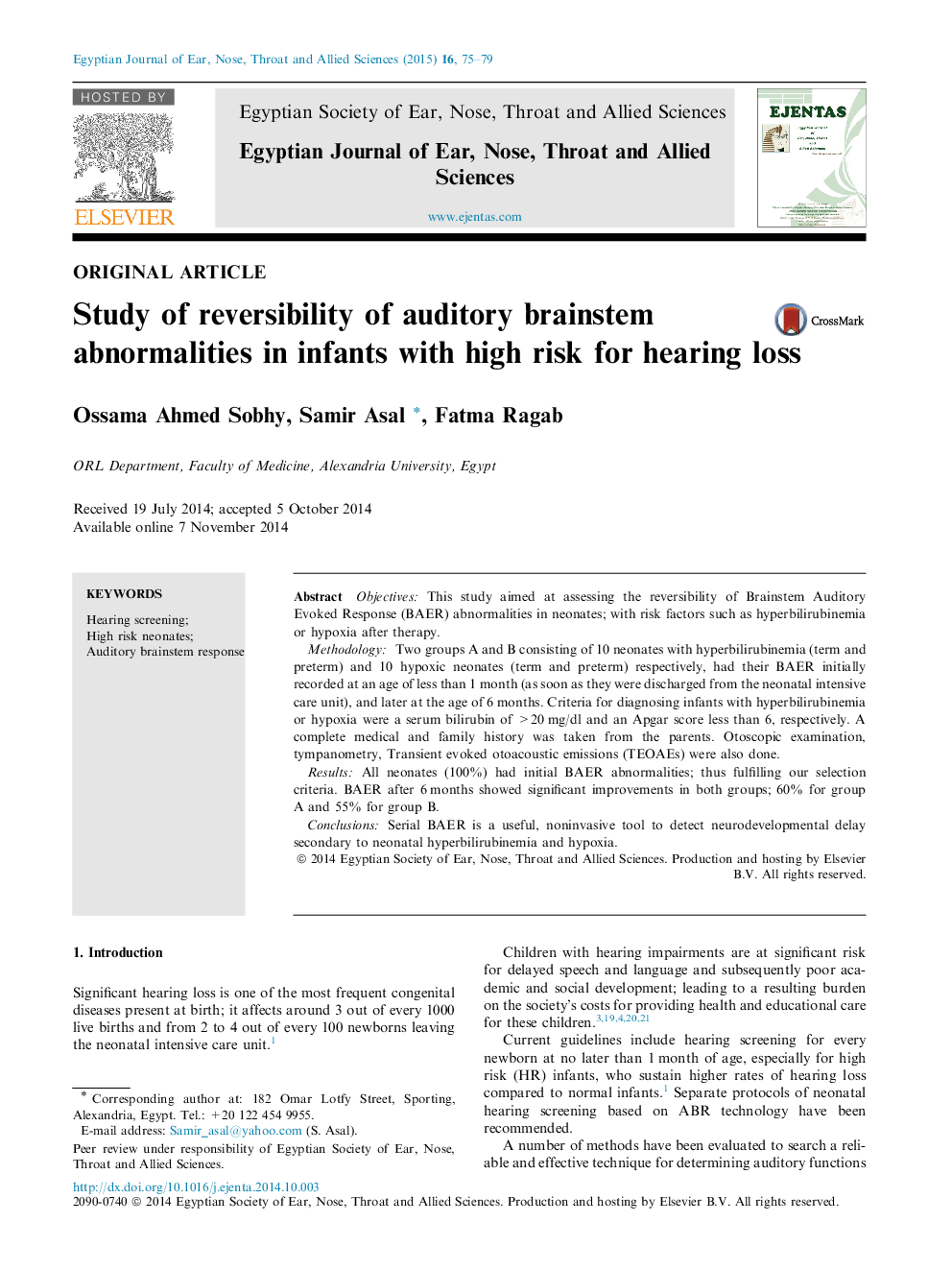| Article ID | Journal | Published Year | Pages | File Type |
|---|---|---|---|---|
| 4108865 | Egyptian Journal of Ear, Nose, Throat and Allied Sciences | 2015 | 5 Pages |
ObjectivesThis study aimed at assessing the reversibility of Brainstem Auditory Evoked Response (BAER) abnormalities in neonates; with risk factors such as hyperbilirubinemia or hypoxia after therapy.MethodologyTwo groups A and B consisting of 10 neonates with hyperbilirubinemia (term and preterm) and 10 hypoxic neonates (term and preterm) respectively, had their BAER initially recorded at an age of less than 1 month (as soon as they were discharged from the neonatal intensive care unit), and later at the age of 6 months. Criteria for diagnosing infants with hyperbilirubinemia or hypoxia were a serum bilirubin of >20 mg/dl and an Apgar score less than 6, respectively. A complete medical and family history was taken from the parents. Otoscopic examination, tympanometry, Transient evoked otoacoustic emissions (TEOAEs) were also done.ResultsAll neonates (100%) had initial BAER abnormalities; thus fulfilling our selection criteria. BAER after 6 months showed significant improvements in both groups; 60% for group A and 55% for group B.ConclusionsSerial BAER is a useful, noninvasive tool to detect neurodevelopmental delay secondary to neonatal hyperbilirubinemia and hypoxia.
